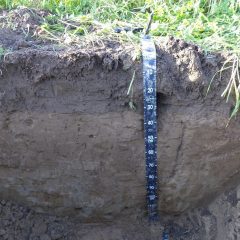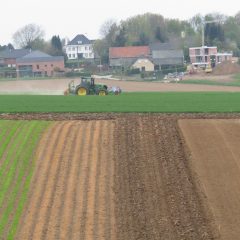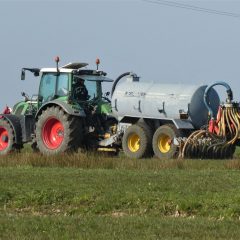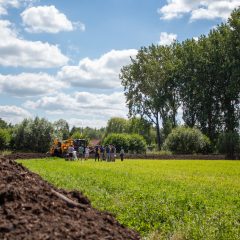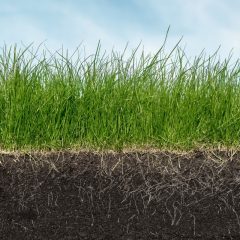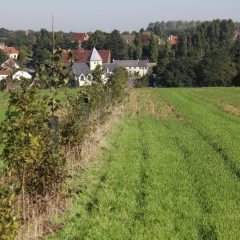Research project Prevention and remediation of soil compaction

General introduction
At the start of the 4-year VLAIO research project "Preventing and Remedying Soil Compaction" in 2019, soil compaction was still only marginally on the radar of farmers, contractors and processors. However, soil compaction affects about one-third of the arable land in Belgium; indeed, across Europe, the phenomenon is considered a serious threat to agricultural production. The use of increasingly heavier agricultural machinery (e.g. +11.1 tons of wheel load on combine harvesters in 2020 compared to 1958) and the increased share of late-growing crops, such as maize and potatoes, in the rotation (e.g. +50% area in Belgium) make soil compaction one of the main threats to modern agriculture. In wet periods, it can lead to reduced drainage and thus waterlogging. In dry periods, roots cannot reach the deeper soil layers and, conversely, moisture deeper in the profile cannot rise, resulting in drought stress. Limited rooting also leads to significantly reduced crop development and yield. In this project, ILVO, Soil Science Service of Belgium, Inagro and Ghent University looked for possible measures to prevent and/or reverse the soil compaction process.
Research approach
In field trials on field plots we evaluated different strategies to prevent and remedy soil compaction. These were all variants and innovations in terms of mechanization, crop monitoring and the time of cultivation. Farmers, contractors, machine designers/distributors, tire manufacturers, etc. were intensively involved in the trials through a user group. Many useful results were recorded: Prevention proved to be the better option. Working wet soils should be avoided. On wet plots, it may be best to choose crop varieties that can be harvested earlier in the season, under drier conditions, or to wait a little longer in the spring to fertilize/till/sow. Lowering the tire pressure can cause farm machinery to exert less pressure on the soil surface. In the trials, this approach produced higher crop yields as well as lower fuel consumption. The fixed tramline system minimizes soil pressure areas, which benefits soil structure. The effects on crop yield were found to be highly variable. Deep soil tillage is quickly resorted to for remediating soil compaction, but it now appears that its impact is highly dependent on subsequent weather conditions. A positive effect is very often limited to the first year. To perpetuate the effect of deep tillage, it can be followed immediately by the sowing of deep-rooting crops such as alfalfa and fodder radish. In fact, these crops have the ability to break up highly compacted plow soils on their own and thus initiate a slower, but also more sustainable, remediating process.
Relevance/Valorization
The United Nations has made "stopping soil degradation" one of the 17 Sustainable Development Goals (SDG 15). The Flemish Government is also strongly committed to preventing and remedying soil compaction. Thus, this research responds to Operational Objective 10.1 (OD) of the policy document Environment 2019-2024 (resilient soils). This Vlaio project therefore helps multiple policy levels achieve their objectives. To raise farmer awareness, attention was paid throughout the project to knowledge sharing and dissemination around soil compaction and the improvement pathways. This was done through a website, newsletters, study days, demonstrations, articles in the trade press and further expansion of the existing tool Terranimo(R). Farmers and stakeholders are becoming more aware of the importance of improved soil water management, which is directly related to strategies for less soil compaction. Finally, climate change also increases the urgency: several (Flemish) climate studies predict increasingly long droughts followed by periods of intense precipitation (e.g. IPCC 2014).
Financing
VLAIO
Boerenbond
ABS - Algemeen Boerensyndicaat
BAYER CROPSCIENCE NV
Alliance Tire Europe
Michelin Belux
VDD Agri
Steeno NV
Bridgestone Europe
PRP Technologies - Olmix Group

